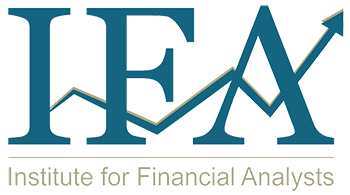Do You Have What it Takes to Become a CFA® Charterholder?
Posted By: Kaplan Schweser
Updated: February 7, 2019
Anyone who has gone through the CFA® Program exam preparation experience will tell you it isn’t for the faint of heart. The CFA Program exam is challenging…but like most difficult things in life, it’s challenging because it’s worth it. According to CFA Institute, the CFA charter is the most respected and recognized investment management designation in the world.
If you’ve considered completing the CFA Program and earning your charter, you’ve probably wondered, “What skills do I need to be successful?” We recently surveyed a large population of CFA charterholders and asked that very question. Here’s what they told us it takes to successfully earn the CFA charter and perform the functions of a Chartered Financial Analyst® in the day-to-day business world.
Discipline
Many people decide to pursue the CFA charter without fully grasping the level of discipline required to stay with it. At the very minimum, you are committing to at least 22 months of intense focus. Sometimes this means saying “no” to social opportunities you’d rather say “yes” to. Sometimes it means temporarily walking away from hobbies that are a big part of your life. The discipline needed to pass the CFA Program exam isn’t making one big decision to stay on task…it’s making a lot of little decisions.
Time Management
Time management is a critical skill when preparing for the CFA Program exam. After all, life doesn’t stop just because you need to study for 300 hours per level. Work, family, and other commitments can make it difficult to find the time you need to take your exam preparation seriously. And once you get behind, catching up is hard to do. It’s important that you commit to a realistic study plan and make every effort to stick to it.
Integrity
Financial analysis at the CFA charter level requires a high regard for ethics and integrity. The greatest CFA charterholders also build in checks and balances to identify their biases and overcome them. CFA charterholders are hired for their expertise and ability to provide a clear and thorough analysis. Doing so requires a commitment to upholding the utmost integrity in everything they do.
Diligence
You can’t cram for the CFA Program exam. Many have tried and found that out the hard way. There aren’t really any measurable shortcuts either, aside from using an exam prep provider. You need to spend time mastering critical concepts and working through practice questions. It’s the only way to ensure that you have the foundational knowledge you need to solve the problems the CFA Program exam will present you with. As you prepare for Level I, it’s especially important to not settle for “good enough.” Each level of the CFA Program builds on the knowledge tested in the prior one. So “good enough” to pass Level I could put you in a bad position for Level II, because you’re building on a weak foundation.
Focus
In a world filled with distractions, focus doesn’t always come easy. As one of our survey respondents said, there will be times you’ve had a particularly difficult day at work. You won’t want to go put in another two or three hours at the library. But you will. If you make the decision to pursue the CFA charter, you’ll need to be able to focus on your studies and on the pinnacle of achievement waiting to award you at the end of the road. The only way to get there is to keep moving.
Attention to Detail
Attention to detail is critical both on the CFA Program exam and in your career. CFA charterholders are highly sought after because of a reputation for noticing and catching details others might miss, as well as providing insight and advice based on those details. If you have an impeccable eye for detail, you already possess an imperative trait for success on the CFA Program exam, and in your future career.
Curiosity
Curiosity can make the difference between a good financial analyst and a great one. How can curiosity benefit you as a CFA charterholder? A great analyst doesn’t just take things at face value, without digging a little deeper. A natural curiosity and the inclination to always ask the question “Why?” is a valuable characteristic to possess as a CFA charterholder.

